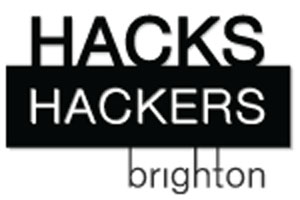Hacks/Hackers Brighton met on Tuesday evening (3 July) and heard from two fascinating speakers.
The meetup is part of the global network of Hacks/Hackers, with the Brighton chapter organised by Journalism.co.uk.
You can find full details of the talks as liveblogged by Adam Tinworth on “One man and his blog”.
Bobbie Johnson talked about Matter, a digital project dedicated to in-depth science and technology journalism, which raised $50,000 in 38 hours by crowdfunding on Kickstarter.
Johnson is also European editor at technology site GigaOM and was previously technology correspondent at the Guardian.
Matter, the brainchild of Johnson and co-founder Jim Giles, a US freelance reporter who has written for titles including the Economist and New Scientist, raised $140,000 from 2,500 backers on Kickstarter and is due to launch in September.
Each feature will be an in-depth piece of long-form journalism focusing on science and technology. Readers will be charged $0.99 to read each article.
Each story as an individual publication, it’s a small book. It isn’t a magazine, it isn’t a website, it’s Matter.
The aim is to publish roughly one article per week with the team working on the basis that “less is more”.
Johnson said that Matter will “look beautiful” and also “work across many difference devices”, from an iPad and phone to Kindle and desktop.
He said he expects the articles to be picked up by other publications.
We are writing stories that are interesting enough that other people will want to write about them.
The second talk was by investigative journalist Duncan Campbell.
Part of the talk was a “call to action” to highlight the “obscurely worded” Communications Data Bill, launched by the government last month which is “intended to place every kind of internet communication and web access under official scrutiny”, according to Campbell.
Campbell has spent nearly 40 years reporting on secret national and global structures of electronic surveillance.
He told Hacks/Hackers Brighton how he had been followed by intelligence agencies, had his house raided, and was arrested in the course of his career.
As referred to in the talk liveblog:
Forty years ago GCHQ in Cheltenham was an absolute secret. When he proposed a feature to Time Out, he phoned up GCHQ, and amazed the receptionist by the sheer fact of knowing it.
In 1976, he published the first article describing the now well-known signals intelligence activities carried out by GCHQ Cheltenham. Two American journalists were deported while Campbell and another journalist were arrested.
The following year Campbell faced trial at the Old Bailey and up to 30 years imprisonment, “prosecuted on charges laid under the Official Secrets Act”, according to book The Justice Game.
In the mid-1980s Campbell went to work for the BBC, and started a series called “Secret Society” and worked on a story about the first government spy satellite, Zircon.
The show was banned, but the story was reported in a magazine. The office of the magazine, Campbell’s house, and the BBC’s Scotland office were raided, Campbell told the meetup.
In 1988, Campbell revealed the existence of the Echelon network of commercial satellite monitoring stations, and the “dictionary” system for storing and analysing intercepted private messages. In 2000, he prepared a series of reports on Echelon for the European Parliament.
Since then, Campbell told the meetup, he has worked as an accredited computer forensic expert, and has audited and examined thousands of call records, call recordings and location data files used in criminal cases, as well as dozens of computers seized from terrorism suspects.
It is well worth reading the liveblog of Campbell’s talk to see more on changes to privacy laws, some of which he said came after but “were not triggered” by the terrorist attacks in the US.
